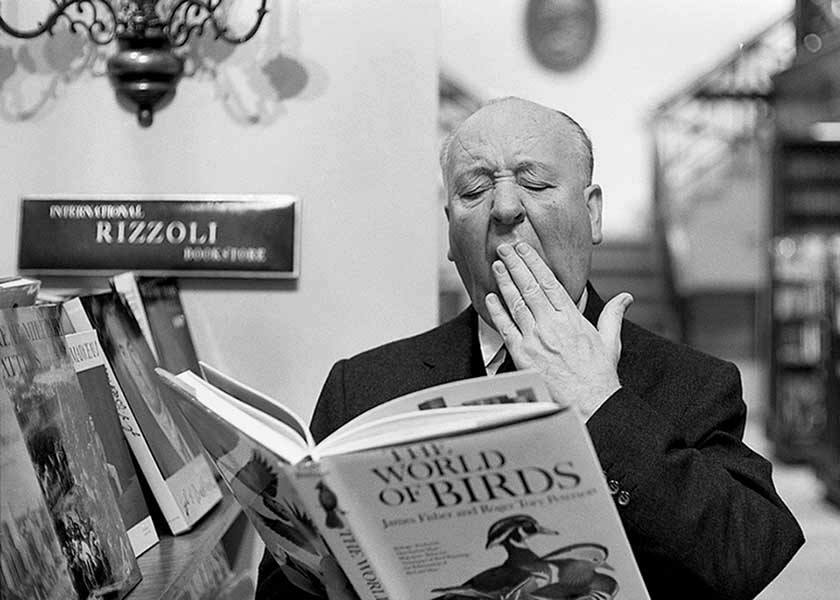- Home |
- Search Results |
- The books that inspired Alfred Hitchcock

Forty years ago today, the credits finally rolled Alfred Hitchcock's life. And while he is celebrated today as one of history's greatest filmmakers, he undoubtedly owes at least a pinch of his success to the handful of books from which he drew inspiration.
Not that Hitchcock always respected those books. He was famous for his near disdain of the literary works he adapted, taking only what interested him and discarding the rest. 'The paperback is very interesting but I find it will never replace the hardcover book,' he once said, 'it makes a very poor doorstop.'
Still, a great story makes a great movie. And even Hitchcock himself could not deny the influence of a select coterie of novelists whose stories even he couldn't ignore. So, in celebration of those writers and their work – from Daphne du Maurier's Rebecca to Patricia Highsmith's Strangers on a Train – here are some of the books behind Alfred Hitchcock's best-known films.
'Real horror is not in the shadows, but in that twisted little world inside our own skulls' - Robert Bloch
Film: Psycho (1960)
Book: Psycho by Robert Bloch (1959)
'The room was plainly but adequately furnished; she noted the shower stall in the bathroom beyond,' Bloch writes when Mary arrives at the Bates Motel. 'Actually, she would have preferred a tub, but this would do.'
This was the opening of a scene that would forever change how the world saw showers. Combined with Hitchcock's film a year later, Psycho turned it from simply a convenient place to get clean to a convenient place to get brutally murdered. Or, as the writer Ray Bradbury put it: 'suddenly, we were confronted with the fact that our showers were not safe.'
The speed at which the film followed the novel is testament to the impact it had on Hitchcock. 'Psycho all came from Robert Bloch’s book,’ he later said of Psycho. And Bloch's story, about the brooding serial killer driven mad by the constant orders of his dead mum, is every bit as disturbing as Hitchcock's, and delves far deeper into Bates' shudderingly weird relationship with his mother as well as his own haunting pathology.
As Bloch once said: 'Real horror is not in the shadows, but in that twisted little world inside our own skulls.'
'The paperback is very interesting but I find it will never replace the hardcover book. It makes a very poor doorstop' - Alfred Hitchcock
Film: Vertigo (1958)
Book: D'entre les Morts by Pierre Boileau and Thomas Narcejac (1954)
Initially a box office failure, no Hitchcock movie encountered such a complete critical turnaround as Vertigo. It was largely forgotten for 20 years until its 1984 re-release, when it grew into one of the most discussed and dissected movies Hitchcock ever made. And like the film, the book is nuanced up to the gills, demanding multiple readings to appreciate it's many subtleties.
A gripping excavation of deception and obsession with a nerve-twanging twist at the end, D'entre les Morts (English title, The Living and the Dead), follows an ex-cop, thrown out of the Force on account of his vertigo, who falls in love with the suicidal wife of his friend.
Hitchcock was said to love Boileau and Narcejac's work so much that, upon hearing they were writing D'entre les Morts in 1954, he demanded that Paramount buy the rights before it had even been translated into English. It remains today as compulsively readable as Hitchcock's adaptation remains compulsively watchable.